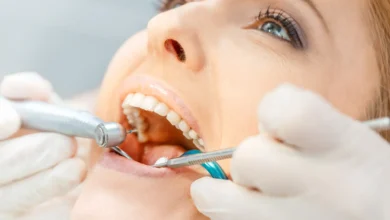How to Prepare Your Child for Their First Dental Appointment?

Building Confidence and Comfort
Talking About the Dentist in a Positive Way
Children often take emotional cues from their parents, so the way you talk about the dentist will shape how they feel about the dentist. Using calm, friendly language and focusing on the benefits of dental care helps reduce fear. Instead of saying “It won’t hurt,” which may introduce worry, say “The dentist helps keep your teeth strong and clean so your smile stays healthy.” You can read children’s books or watch videos that show fun dental visits so the experience feels familiar. Role-playing at home with a toy toothbrush or counting pretend teeth can also help your child playfully understand the routine. Keeping the tone light and reassuring builds a sense of safety. Avoid sharing negative dental stories or expressing your own anxiety, as children quickly pick up on those emotions. By presenting the dentist as a helpful friend and explaining simple steps, such as “They will look at your teeth and count them,” you create a foundation of trust. The more your child understands, the less likely they are to feel overwhelmed or resistant, turning their first visit into a smooth and positive experience.
Choosing the Right Timing and Introducing the Environment
Scheduling the appointment when your child is well-rested and calm can significantly improve cooperation. Early in the day often works well, as children are more alert and less likely to be cranky. Before the appointment, explain what will happen in a step-by-step manner using language they can understand. You can also drive by the dental office or look at photos online to make the place feel familiar. Some practices allow brief introductory visits or “meet and greet” sessions to help children feel comfortable before any treatment. Wearing comfortable clothing and bringing a favorite toy or blanket can provide a sense of emotional security. During conversations, emphasize that the dentist’s job is to help keep their teeth clean and strong. If your child has questions, answer them honestly without exaggeration. When children feel prepared and respected, they build confidence and trust. Parents can also mention that our dental services are designed to be gentle and supportive, helping children feel comfortable during every step of the visit. Early exposure to the environment and routine helps reduce surprises and naturally builds cooperation.
Practicing Good Habits Ahead of the Visit
Preparing your child for their first dental appointment isn’t just about managing emotions—it’s also about teaching good oral hygiene habits before the visit. Showing your child how to brush their teeth properly and making this a fun daily routine helps them feel involved in their own care. Turning brushing into a game, using a timer, or playing music can increase engagement. When children understand why brushing and flossing matter, they take more pride in their smiles and feel less intimidated when someone else examines their mouth. Parents can also practice opening wide or sitting still for a few seconds so the child becomes familiar with how the dentist will look at their teeth. Offering positive reinforcement, such as praise or small rewards for good hygiene, helps build confidence.
Additionally, avoiding sugary snacks before the appointment reduces discomfort and improves results. Teaching children that dental care is part of staying healthy, rather than a punishment, helps them approach the appointment with curiosity rather than fear. When the child arrives already practicing hygiene, the visit feels like a natural extension of what they do at home.
Staying Calm and Offering Reassurance During the Visit
On the day of the appointment, your presence and attitude will strongly influence your child’s reaction. Staying calm and relaxed helps your child feel safe. Speak gently and offer encouragement rather than pressure. If the dental office allows it, sitting close or holding your child’s hand can provide comfort. Let the dental staff take the lead when explaining procedures, as they are trained to communicate with young patients in a friendly and supportive way. Avoid reacting negatively if your child becomes nervous; instead, reassure them that it is okay to feel unsure. Offering praise for small acts of cooperation—like sitting in the chair or letting the dentist count their teeth—builds confidence. If the child expresses fear, acknowledge their feelings and remind them that the dentist is there to help. Some offices use fun decorations, cartoons, or small prizes to make the experience enjoyable. By staying patient and positive, you help your child form a healthy association with dental care. This first visit sets the foundation for future comfort and cooperation, making it easier to maintain regular appointments as they grow.
Preparing your child for their first dental appointment is an essential step in building lifelong oral health habits and reducing fear. By using positive language, explaining the process in a child-friendly way, and creating familiarity with the environment, parents help children enter the dental office with confidence. Practicing good hygiene at home and role-playing dental routines makes the experience feel natural rather than intimidating. Scheduling the appointment at the right time and bringing comfort items can also improve cooperation. During the visit, staying calm and supportive reassures your child that they are safe and cared for. Gentle guidance, praise, and patience help transform what could be a stressful event into a positive memory. When children have a comfortable first experience, they are more likely to maintain regular dental visits and take pride in caring for their teeth. With the proper preparation, the first appointment becomes a stepping stone toward a lifetime of healthy smiles and confident dental care habits.



